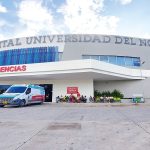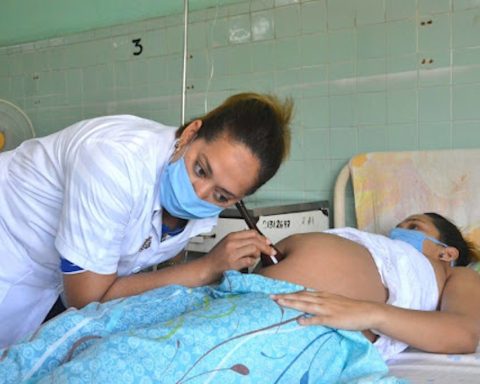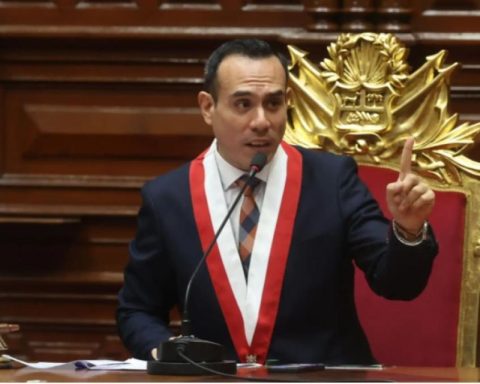AND
his beginning of the year, almost every day, we learn that someone valuable has died. Horacio Quiroga, a Uruguayan short story writer, recommended not writing under the dominance of emotion, letting thoughts settle without giving up on it. So now, I want to remember Rosi Cabrera, a permanent member of the Mexican Movement of Solidarity with Cuba, always mobilizing and denouncing US aggression, a generous and constant commitment. Also to Moreschi, rebellious teacher, generous, cheerful and sarcastic comrade, a trait shared with César Navarro and Enrique Ávila in so many intricate meetings of the FZ and the teachers’ collective.
César, companion of three decades full of experiences (complex and contradictory) and legacies (clear). Son of a fearless woman, of arms to take
, that the revolution fanned at the age of 15 to found ejidos and rural schools convinced of socialist education. Carmen Gallegos was general secretary of the magisterial sections of Zacatecas and Durango, she fought for her companions until Joguitud imposed her retirement. César, the eldest of his three children, undertook this path at the age of 11 when he arrived at the boarding school of the rural normal school of San Marcos.
The six years in the normal marked her organizational experience, her capacity for mobilization and her understanding of the spaces of frontal struggle for life. He always repeated that the only true student organization was the FECSM. A unique experience that allows to articulate the student-peasant-teacher struggles, the historically radical ones. All of which implies a very Latin American vision of the historical subject of change, which cannot be mechanically limited to the proletariat. Here begins an important legacy for theoretical definitions. His admiration for Álvaro Ríos, whom he visited in prison, made him join the PPS. While the strong internal contradictions lead him to go out with Gascón Mercado and found the PPM: in 1976, the experience of the first electoral victory in Nayarit followed by the direct and violent intervention of Echeverría, articulated with the negotiation-betrayal of Cruickshank, sowed the instinct to mistrust electoral processes.
We met in the magazine For this. César, Gascón, Valero, Álvaro Ramírez Ladewig and Castañeda O’Conors arrived. Those were the times of the merger of the PSUM. The unity of the socialist forces was announced. In reality, it became a battlefield for the hegemony of the process. The apparatchik They unleashed all kinds of tricks, specialists in taking over structures and organizing parallel committees. They called us derogatory the green wave
for the peasant, raises them fingers
and they presumed to be exceptional cadres, theoretically trained (in the Nikitin manuals!). The battle was sordid and tricky: the tell us
the reindeer
the raccoons
, in petty maneuvers. In Mexico City we took refuge in the Azcapotzalco branch, together with Paquita Calvo and some young communists who still believed in the workers’ struggles. In the rest of the country, in the Ugocm-Roja. Gascón chose César to stop the tricks from the Secretary of Organization. I remember him telling me: Facing a confrontation is like a volcano, unstoppable
. Electoral utilitarianism made unity impossible. Leaving was inevitable, founding the PRS and then again leaving to take refuge in a small unit-sect called the Marxist-Leninist Tendency, with Haro and the comrades from Guadalajara, Tereso Félix, from Sonora, and the Ugocm team, those from Puebla. and the DF group. With her we approach the MPM, by Alonso Aguilar and Fernando Carmona. The inevitable legacy was to distrust even more the great electoral mergers financed with State resources that attract opportunists and deform social leaders.
The militancy opted for solidarity with the struggling movements of El Salvador and Guatemala. In the 1990s, after the fall of the socialist camp, the essential commitment was with the Cuban revolution. By founding the Promoter ¡Va por Cuba! there was a frontal battle against the devastating and tricky globalizing ideology. It was necessary to rescue the essence of the central principles of the change that Cuba represented for all humanity. We knew how to sustain a collective and unitary leadership, without mixing or putting political positions before and preventing personal-partisan requests in Cuba. That experience left a positive legacy and confirmed the need to sustain the battle of ideas that Fidel unleashed.
The 90s also combined with strong struggles and strikes in the UPN against the neoliberal reforms, from the collective union leadership. César proposed the principles of: 1) thinking of mobilization as a strengthening of the organization, not as a vehicle for negotiation; 2) do not dilute the requests in future uncertain commissions; 3) do not end up negotiating only the consequences of the strike, and 4) never open the space to the charros. He repeated these principles for different social organizations, he said: now that they leave the Government, they take several commissions and the buses for the return
. The cycle closed with the intense processes of teachers’ struggle against the Calderón-Peñista reforms and with the normalistas of Ayotzinapa, seeking to participate with the groups of democratic teachers, always trying for a unity that is as absolutely necessary as it is impossible.
* Researcher at the UPN. Author of The Inee
















